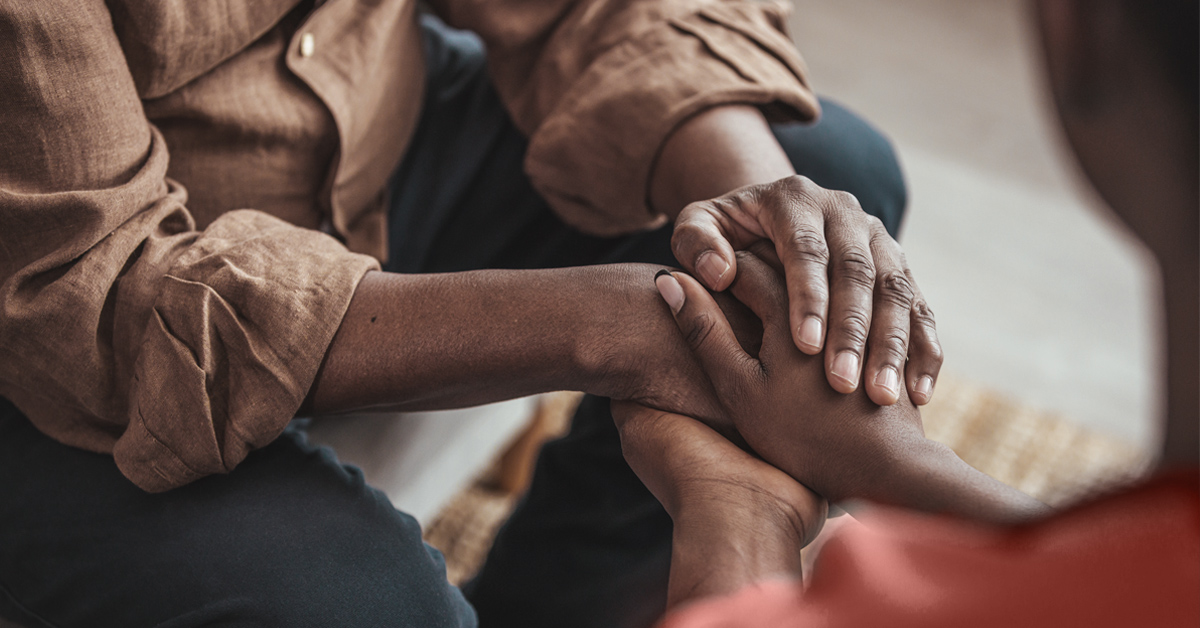
Mental health first aid is an evidence-based approach designed to reduce the negative outcomes associated with mental health crises.
The goal of mental health first aid is to provide support and connect people with professional help before their situation gets worse. Just as CPR training helps lay people recognize and respond to physical emergencies, mental health first aid training offers the skills needed to recognize and respond to mental health crises.
The training covers a variety of topics, including how to spot the early warning signs of mental illness, how to approach someone who might experience a mental health crisis, and where to find professional help. The training teaches about recovery and resiliency and the belief that people can use their strengths to stay well.
Mental Health Consequences of the COVID-19 Pandemic
According to the World Health Organization, one in eight people globally lives with a mental disorder. The National Alliance on Mental Illness (NAMI) reports this number is closer to 20% of adults in America, with suicide being the second-leading cause of death for children ages 10-14.
A 2019 by the American Psychiatric Association found that half of the workers were concerned about discussing mental health issues at their jobs. During the COVID-19 pandemic, at least 40% of adults in the United States faced distress.
During chaotic times, people often cannot perform their normal activities, which can lead to occupational disruption.
The Impact of Low Health Literacy and Stigma on Seeking Help
Several factors stop people from seeking help for mental health conditions, including poor quality services, low levels of health literacy in mental health, and stigma and discrimination (Kutcher et al., 2016).
The AOTA’s Societal Statement on Health Literacy calls for occupational therapy professionals to gain the skills necessary to promote clients’ health self-management and participation skills, especially through integrating health literacy-centered systems such as mental health first aid.
The CDC (2020) defines health literacy in two ways:
- Personal health literacy is the degree to which individuals have the ability to find, understand, and use information and services to inform health-related decisions and actions for themselves and others.
- Organizational health literacy is the degree to which organizations equitably enable individuals to find, understand, and use information and services to inform health-related decisions and actions for themselves and others.
The WHO has identified health literacy as one of the social determinants of health. However, over one-third of occupational therapists surveyed reported no knowledge or education on health literacy (Attard et al., 2021).
Mental health literacy is a crucial aspect of occupational therapy interventions. With the high prevalence of mental health disorders, occupational therapists often encounter patients experiencing mental health issues.
The Role of Mental Health First Aid in Improving Mental Health Literacy
Besides providing support and connecting people with professional help before their situation deteriorates, the central aim of mental health first aid is to improve mental health literacy.
The specific aims include:
- Helping prevent the mental health problem from becoming more serious
- Providing comfort to a person with a mental health problem
- Preserving life where a person may be at risk of harm
- Promoting recovery of good mental health
Video: What is Mental Health First Aid?
The Importance of Mental Health First Aid Training for Occupational Therapists
The American Occupational Therapy Association's Societal Statement on Health Literacy calls for therapists to gain communicative and educational skills to promote clients' health self-management and participation skills, particularly through integrating health literacy-centered systems.
Mental health first aid equips individuals and organizations with the skills to identify, assist, and act as a point of contact and reassurance for a person who may develop or experience a mental health issue or emotional distress.
Occupational therapists can integrate mental health first aid into daily and work life; it is typically offered by someone in the person's social network or someone working in a public-facing role. It is not a psychological intervention or therapy, and there is specific training available to become a qualified mental health first aider.
Learn More
Tania Sofia Nogueira, MSc, HCPC – UK, COT – UK, ACSS – PT, teaches anOccupationalTherapy.com course on Mental Health First Aid Awareness. https://www.occupationaltherapy.com/ot-ceus/course/mental-health-first-aid-awareness-5714
Find a Mental Health First Aid Certification Course https://www.mentalhealthfirstaid.org/take-a-course/
Professional Help for Mental Health Crises: If you think someone is experiencing a mental health crisis, there are many professional resources available to help. In the U.S., the National Suicide Prevention Lifeline at 1-800-273-8255 provides 24/7 support for people in distress or who are experiencing suicidal thoughts.
References
Attard, E., Musallam, A., Vaas, K., Chaney, T., Fortuna, J. K., & Williams, B. (2021). Health literacy in occupational therapy research: A scoping review. The Open Journal of Occupational Therapy, 9(4), 1-18.
Kutcher, S., Wei Y., & Coniglio, C. (2016). Mental health literacy: Past, present, and future. The Canadian Journal of Psychiatry, 61(3), 154-8.